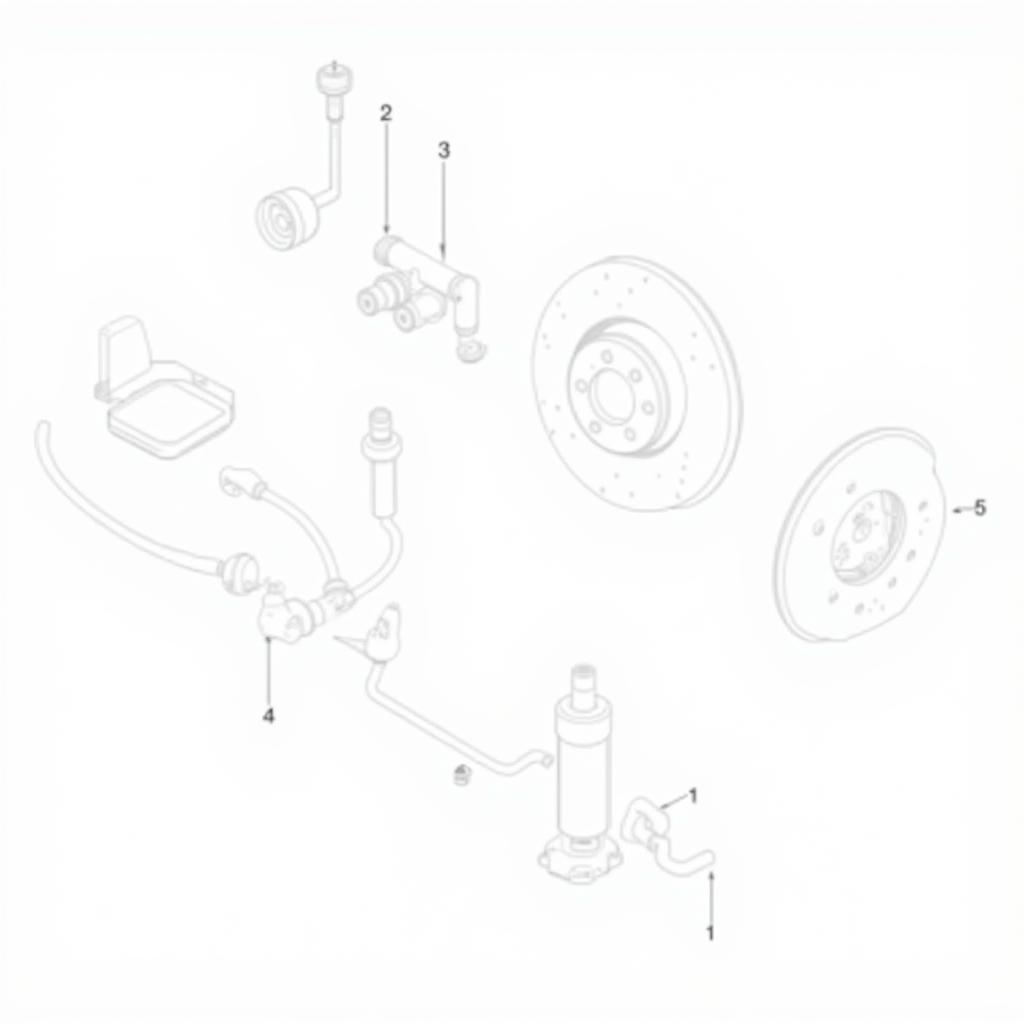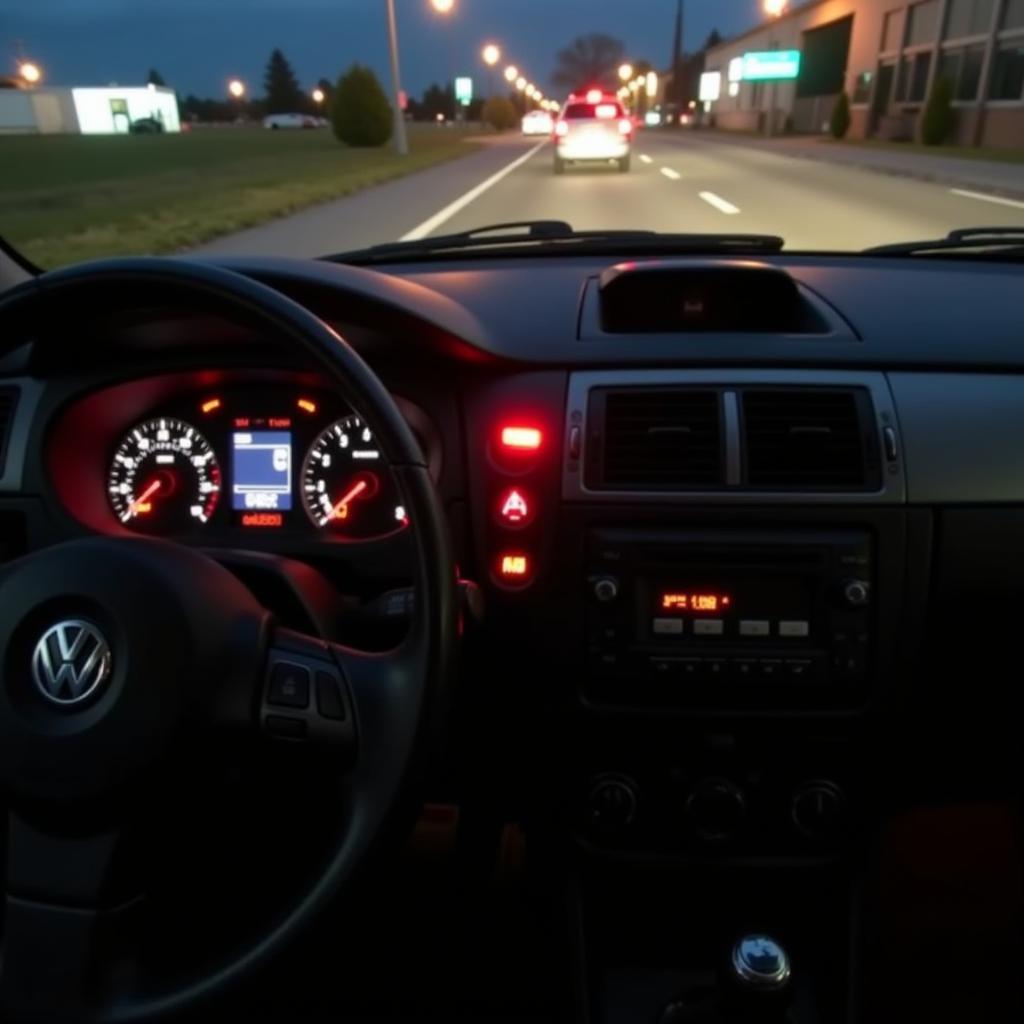A brake warning light on your Hyundai is never a good sign, but it doesn’t always mean disaster. Understanding what triggers this light is key to addressing the issue and keeping your car safe. This guide covers common reasons for a brake warning light in Hyundai vehicles, how to diagnose the problem, and potential solutions.
Understanding Your Hyundai’s Brake Warning Light
The brake warning light is part of your car’s safety system. It can indicate several issues, ranging from low brake fluid to more serious problems with the braking system itself. Ignoring this warning light could lead to brake failure, putting you and others at risk. If you recently installed a new battery car keeps dying, check the connections thoroughly.
Why is My Brake Warning Light On?
There are several reasons why your Hyundai’s brake warning light might be illuminated. These include:
- Low Brake Fluid: This is the most common cause. A leak in the brake lines or worn brake pads can cause the fluid level to drop.
- Parking Brake Engaged: Sometimes, the simplest explanation is the right one. Ensure your parking brake is fully released.
- Faulty Brake Light Switch: This switch activates the brake lights when you press the brake pedal. If it malfunctions, it can trigger the warning light.
- ABS Issue: A problem with the Anti-lock Braking System (ABS) can also illuminate the warning light. This could be a sensor issue, a malfunctioning module, or a problem with the ABS pump.
- Worn Brake Pads: Many modern Hyundai vehicles have sensors in the brake pads that trigger the warning light when they wear down.
Diagnosing the Problem
Before panicking, there are a few simple checks you can do yourself:
- Check the Parking Brake: Make sure it’s fully disengaged.
- Inspect the Brake Fluid Level: Locate the brake fluid reservoir under the hood and check the fluid level. If it’s low, there’s likely a leak.
- Check Your Brake Lights: Have someone watch your brake lights while you press the brake pedal. If they don’t illuminate, the brake light switch might be faulty.
If these initial checks don’t reveal the problem, it’s time to seek professional help. A qualified technician can use diagnostic tools to pinpoint the issue. If you’ve experienced a car parasitic draw recently, that could also contribute to issues.
What to Do When Your Hyundai Brake Light Comes On
- Pull Over Safely: If the light comes on while driving, pull over as soon as it’s safe to do so.
- Don’t Panic: While a brake warning light is serious, it doesn’t always mean immediate brake failure.
- Check the Basics: Perform the basic checks mentioned above.
- Seek Professional Help: If the problem persists, take your car to a qualified mechanic.
How Much Does it Cost to Fix a Brake Warning Light Issue?
The cost varies depending on the cause. A simple brake fluid top-up might be inexpensive, while a more complex ABS repair could be significantly more.
“A thorough diagnosis is essential before any repairs. Don’t just throw parts at the problem,” advises John Davis, a senior automotive technician with over 20 years of experience.
 Hyundai Brake System Diagram
Hyundai Brake System Diagram
Conclusion
Addressing a brake warning light on your Hyundai promptly is crucial for your safety. By understanding the potential causes and taking appropriate action, you can keep your braking system in optimal condition and avoid potentially dangerous situations. Don’t delay, get your brake warning light checked today. It could be as simple as needing to find the reason for car battery discharge. Remember, a well-maintained car is a safe car.
FAQ
- Is it safe to drive with the brake warning light on? It’s best to avoid driving and seek professional help as soon as possible.
- Can I top up the brake fluid myself? Yes, but if you need to do it frequently, there’s likely a leak that needs professional attention. For instance, a peugeot 308 battery drain could lead to further complications.
- How often should I check my brake fluid? It’s a good idea to check your brake fluid level every month.
- What is ABS? ABS stands for Anti-lock Braking System, which helps prevent wheel lockup during hard braking.
- How often should I get my brakes checked? A brake inspection is recommended every 12 months or 12,000 miles.
- Could a dead battery cause the brake warning light to come on? While a car battery went dead won’t directly cause the brake warning light, it could indicate other underlying electrical issues that might affect the braking system.
- What should I do if my brake pedal feels spongy? A spongy brake pedal can indicate air in the brake lines or a problem with the master cylinder. Seek professional help immediately.


